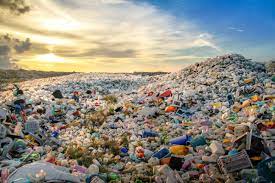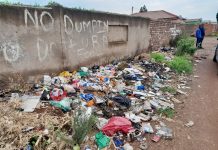By Sariba Manneh
The National Environment Agency (NEA) of the Gambia has renewed its resolute commitment to the fight against the use and importation of plastic bags in the country.
On 1 July 2015, the Gambia passed a law prohibiting the use and importation of plastic bags. NEA is the body tasked with the responsibility of enforcing the law against the use and importation of plastic bags. The agency is struggling to stop the importation and use of plastic bags. Recently, they raided many business centres including corner shops, and made huge seizures of plastic bags and vowed to prosecute them all.
Plastic bags are non-biodegradable and do not decay for hundreds of years. Studies have revealed that an estimated 300 million plastic bags end up in the Atlantic Ocean alone.
Sheikh Alkinky Sanyang, Director of Environmental Education and the Communications Officer of NEA in an interview with Foroyaa on August 14, said plastic bags caused hazardous pollution to the environment and posed a threat to both human and animal health. He added that the dangers necessitated the ban on plastic bags.
“Due to improper disposal systems, many domestic and stray animals end up consuming plastics and get entangled and suffocated to death. Thousands of animals worldwide including cattle, goats, sheep, dolphins, turtles, whales, and penguins are killed every year due to plastic bag ingestion. Many animals ingest plastic bags, mistaking them for food, and therefore die. And worse, the ingested plastic bag remains intact even after the death and decomposition of the animal. Thus, it lies around in the landscape where another victim may ingest it,” Sanyang said.
Director Sanyang calls on the public to support the agency through collaboration to ensure that the aspiration of the law is met. He explained that plastic bags cause damage to the soil nutrients and kill livestock thereby causing economic losses to the farmers. He said the bags also cause blockage of the gutters, thus hampering the flow of water in the channels.
Sanyang said people misuse plastic bags by putting hot foods like “Ebbeh and Nan-Mburr” in them. He added that it is dangerous to put hot food in a plastic bag as it releases the chemical residue content of the plastic into the food, and could lead to long-term health problems.
He revealed that the Environmental Education & Communication unit would embark on a nationwide sensitization tour to community radio stations, adding that local people would have the chance to make calls to participate in the radio talk shows.
During a visit to various markets, including Brikama, Serrekunda, and other major markets, this reporter observed that people still use plastic bags as containers for their foodstuff and that some shops had plastic bags hanging inside their stalls or shops.
One Mbye Jeng, a vendor at Brikama Market, said the ban is impacting his business in a negative way because he does retail transactions.
“I have been using the plastic bags as containers for cooking oil and other foodstuffs I sell on retail,” he said.
A cereal vendor, Alieu Gaye made similar remarks and said the government should come up with a substitute for plastic bags to make their business flow easily.




















